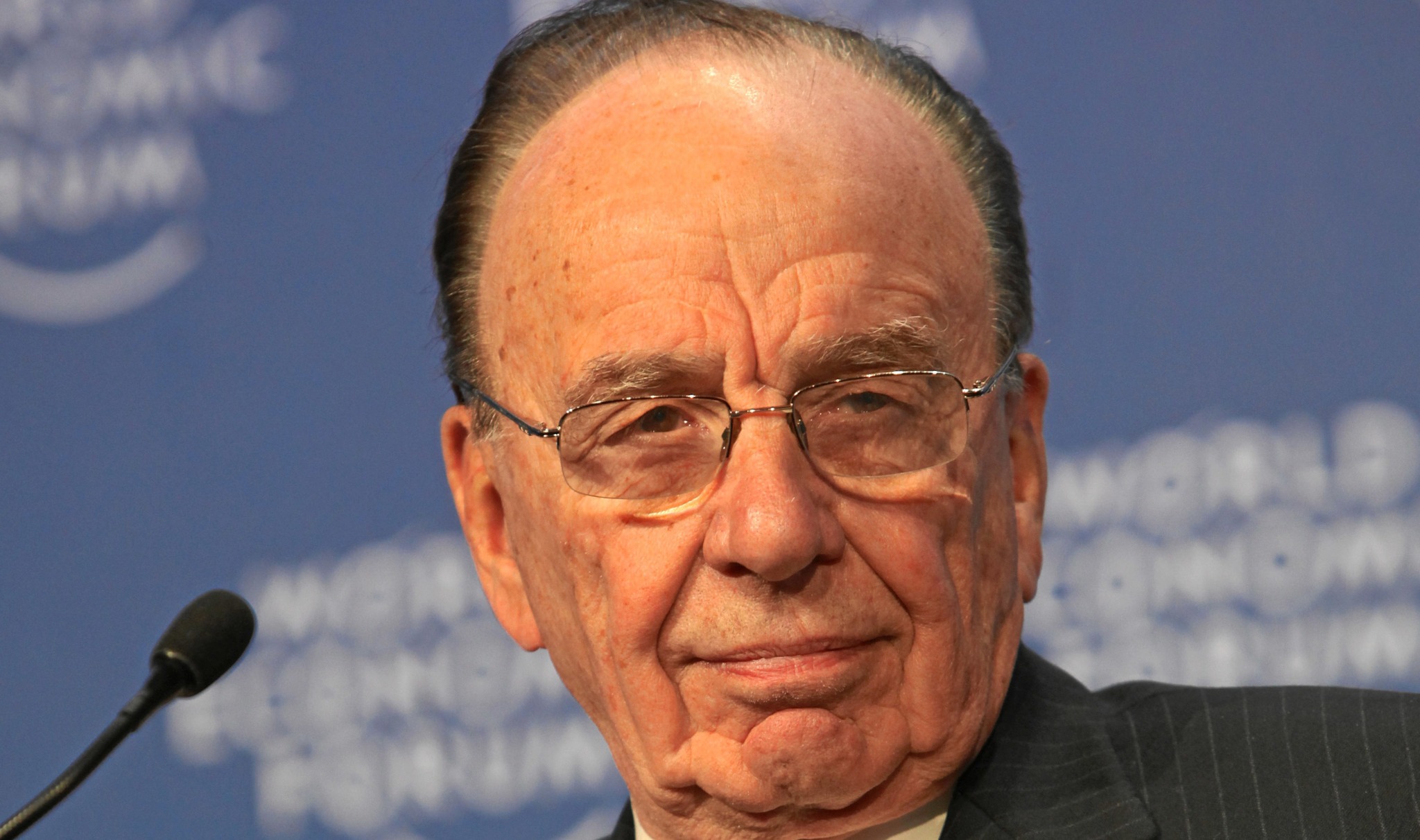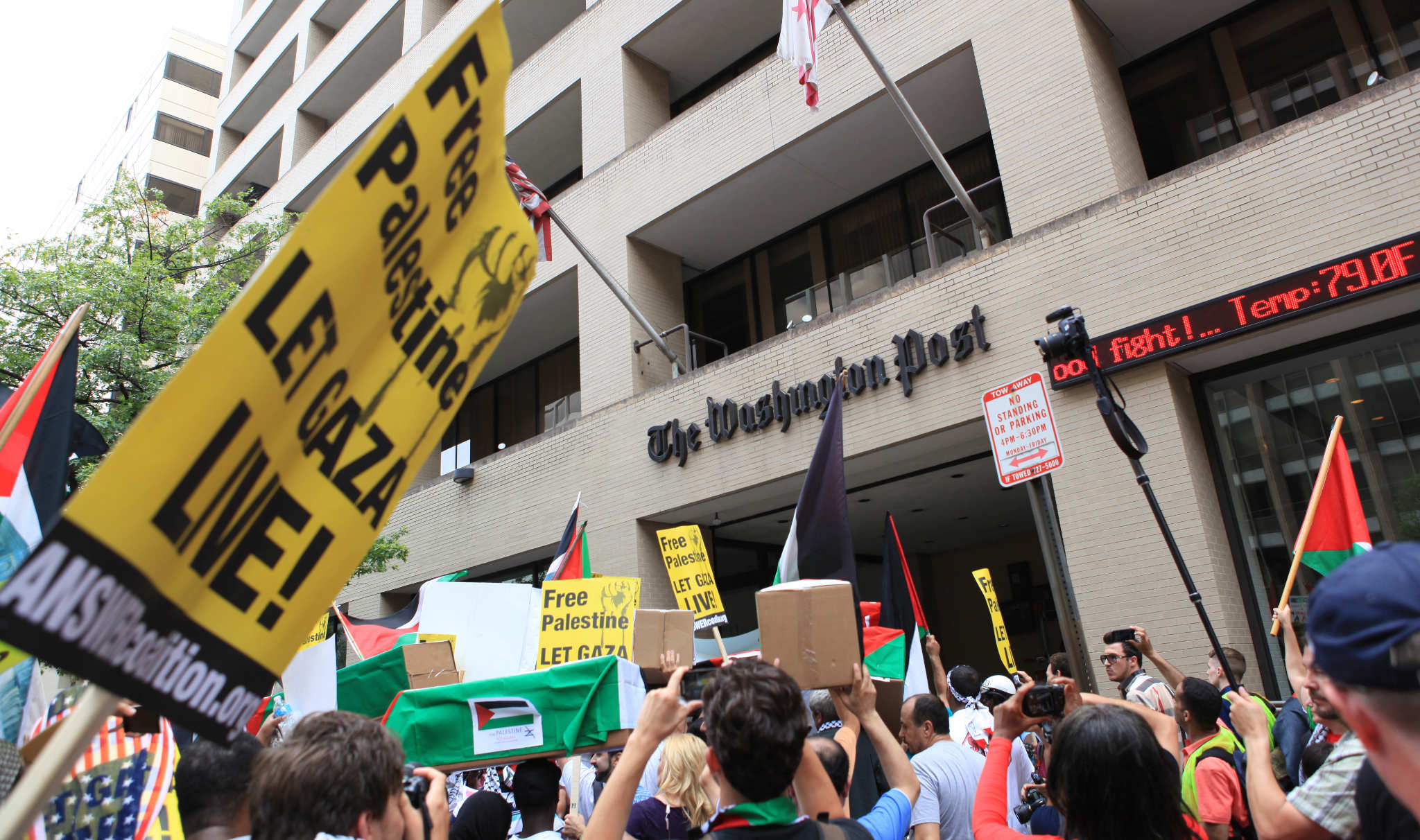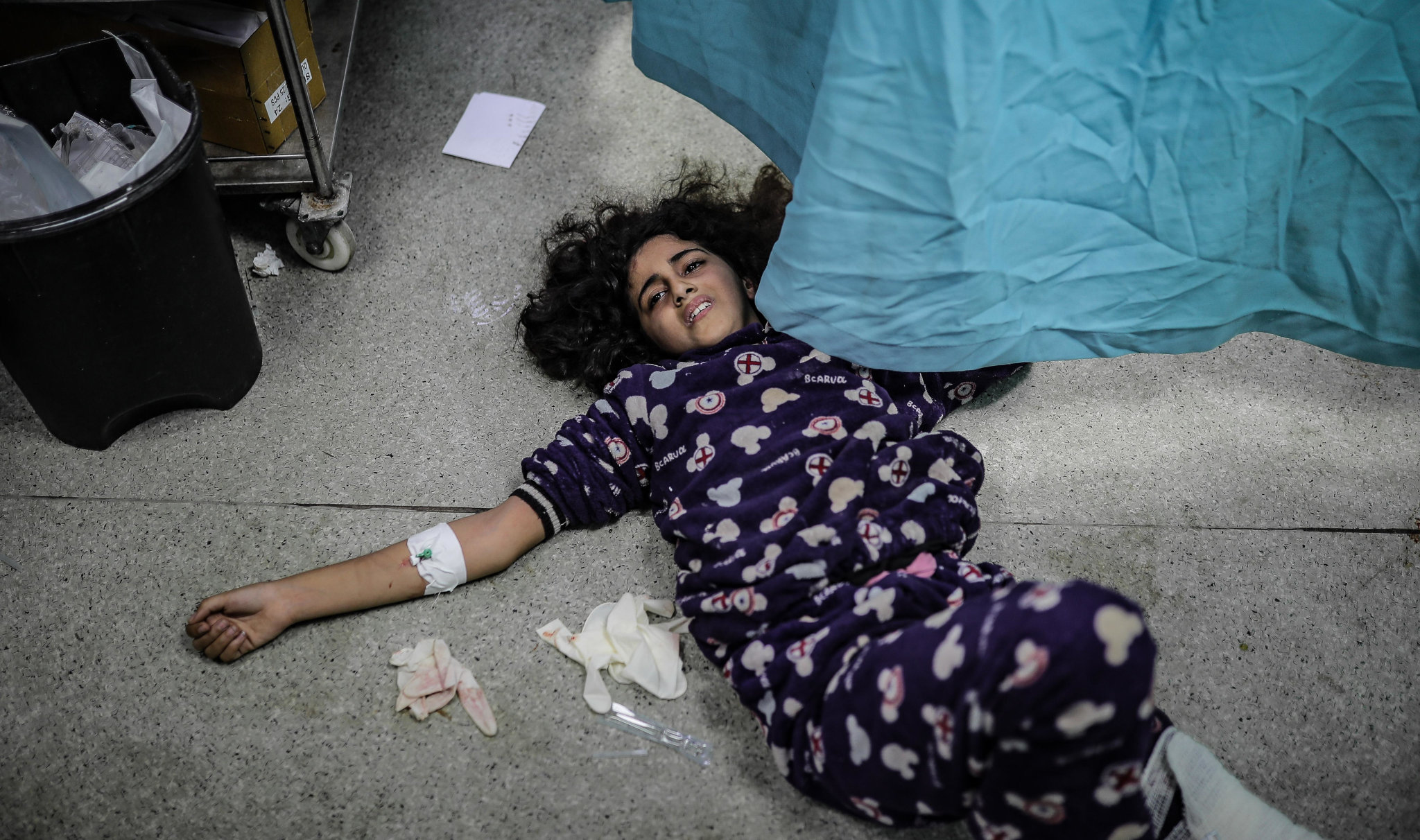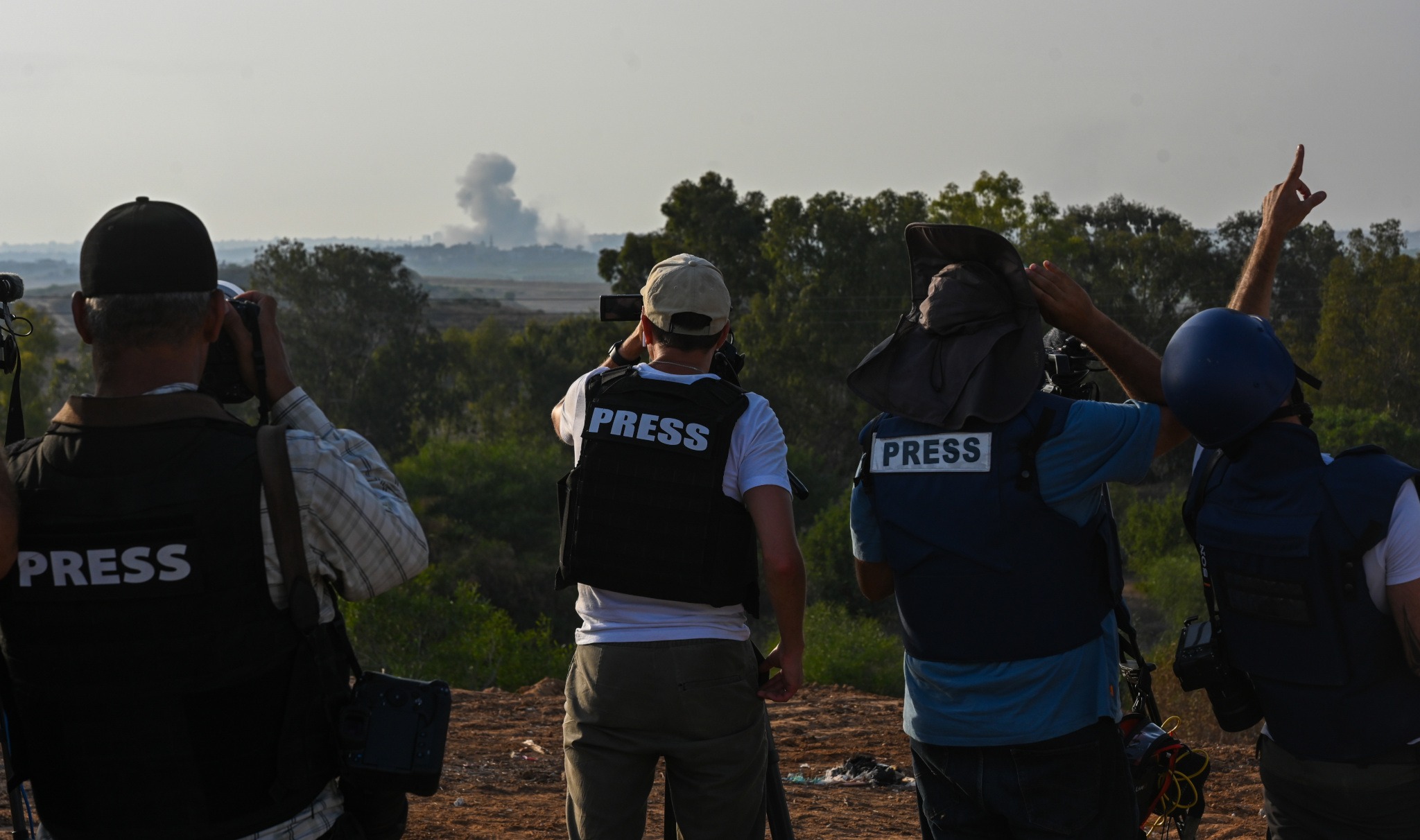The media’s role in the face of Israel’s aggression in Gaza – and plausible genocide – should be to responsibly report the news, validate facts, hold all powers to equal account and paint an accurate picture of events.
But whether this is actually so is the focus of a new, exhaustive report by the Muslim Council of Britain’s Centre for Media Monitoring. It reveals Britain’s worst kept secret: the systematic bias of the mainstream media in favour of Israel when it comes to reporting on its onslaught in Gaza.
The report analyses 176,627 television clips from over 13 broadcasters including the BBC, ITV, Sky and Channel 4.
It also scrutinises 25,515 news articles from over 28 UK online media websites including the Guardian, Times, Express and Telegraph, between 7 October 2023 and 7 November 2023.
The data was analysed for the framing of events, use of language and representation of Palestinian voices.
It finds that 76% of online articles frame Israel’s aggression as the “Israel-Hamas war” – rather than a war on Gaza – and that over 70% of the terms atrocities, slaughter and massacre in broadcast media were used exclusively in reference to attacks against Israelis.
A notable absence of Palestinian voices is also detected: In TV reporting, Israeli perspectives have been referenced almost three times more (4,311) than Palestinian ones (1,598).
‘Right to self-defence’
Also identified is the willingness of many broadcasters to emphasise Israel’s supposed right to defend itself in Gaza.
But as Francesca Albanese, the United Nations special rapporteur on the occupied Palestinian territories, has said, Israel cannot claim the right of “self-defence” under international law because Gaza is a territory that it occupies.
Yet across TV, the insistence on this Israeli “right” is mentioned on 1,482 occasions. By contrast, mentions of the right of Palestinians to resist Israel’s onslaught in Gaza amount to just 278.
The report shows that the broadcaster with the highest percentage of mentions of any rights associated with the Palestinians was Al Jazeera’s English channel.
For online media, Israel’s right to defend itself is mentioned 963 times. This point is featured six times more than any rights for Palestinian people which only receive 163 mentions.
Occupied Gaza
As well as the uneven focus on Israel, there is a pattern of omitting key context for audiences.
The report finds that in one month, out of over 98,500 mentions of the term Gaza, there were only 26 instances of the words “occupied Gaza” on broadcast TV channels.
On 9 October, Labour’s shadow chancellor, Rachel Reeves, told BBC Radio 4’s Today programme: “Gaza is not occupied by Israel.” This was not corrected by her interviewer, Nick Robinson.
The difference in how deaths are described on both sides is also noted, with less value seemingly attributed to Palestinian lives.
In online articles, phrases such as “Palestinians were killed” occur 665 times while there are 1,195 mentions (55% more) in reference to “Israelis killed”.
This is despite Palestinians suffering disproportionately after 7 October following an intense campaign of indiscriminate bombardment by the sophisticated Israeli military.
One example that captures this contrast in how deaths are reported is found in the Times one month on from 7 October. This touched on how “Israelis marked a month since Hamas killed 1,400 people and kidnapped 240, starting a war in which 10,300 Palestinians are said to have died”. [emphasis added]
This is not a tendency confined to those on the right wing of the press spectrum. On 17 October, instead of saying Israel was denying Palestinians water in Gaza via its total siege, the Guardian explained that Palestinians were beginning to “dehydrate to death”.
Readers are thus often left guessing about the perpetrators and the causes when Palestinians are killed.
Unverified claims
The report also finds that unverified claims made by Israeli officials or representatives are not treated tentatively but rather regularly considered as facts. As Declassified has reported, Israel’s fake news about Hamas beheading babies was widely reported as fact in the UK mainstream media.
The Centre for Media Monitoring report finds that, of the 361 TV clips where the term “beheaded” and “babies” was found, only 52 were subject to rebuttals or questioning.
This is despite some journalists in Israel reporting just days after the allegation that it was unconfirmed.
On broadcast TV, 29 mentions were made of “burning babies” or “babies being burned”. Israeli officials were able to make such claims with little pushback.
Israeli spokesperson Mark Regev was asked in a Sky News interview about the evidence that Hamas was using medical facilities and ambulances as command hubs. He said “they are the people who burn babies alive”. The images which form the basis of the claim are yet to be independently verified.
Anti-Palestinian views
Having dehumanising or aggressively anti-Palestinian views are also no obstacle to platforming Israeli interviewees nor are incendiary comments on air often objected to, the report finds.
Israel’s ambassador to the UK, Tzipi Hotovely, is found to have been platformed or referenced 44 times by broadcasters in the month after 7 October 2023. Her history of denying the occurrence of the 1948 Nakba and advocating for Jewish supremacy over the land of Palestine is never raised.
The report notes that on 9 October Hotovely repeatedly stated on Channel 4 News that Gaza was not occupied by Israel. Her false claim was left unchallenged.
The report also reveals the unabashed Islamophobia that laces much of the commentary on Israel’s aggression and the dishonest framing of the situation as a conflict between Muslims and Jews. GB News and Talk TV are highlighted as repeat offenders in this regard.
GB News panellist Leo Kearse accused “a lot of Muslims, a lot of woke leftists” of supporting or equivocating with Hamas.
On the Rupert Murdoch owned TalkTV, writer and historian Rafe-Haydel Mankoo went on an incendiary rant against Muslims and their beliefs declaring that “for many Muslims hatred of Jews is motivated by religion far more than politics”.
He proceeded to add “the hatred of Jews infects much of the Muslim world.” These inflammatory claims were not challenged by the TalkTV hosts.
Anti-semitism
Sections of the press also engaged in such practices. The report points to an article in the Daily Express where Moataz Khalil, an Egyptian-born journalist in London, claims he was taught to hate Jews in his mosque in Egypt.
The publishing of such content fuels the perception that opposition to Israel, especially from the Muslim community, is part of an inherent antisemitism that characterises Islamic values.
This is a dangerous and misleading trope that can have grave consequences: there’s been a 365% increase in Islamophobic incidents in the UK since 7 October, with many involving people being targeted for their support of Palestine.
Ultimately, the report points to “significant biases” and “distortions” when it comes to media coverage of Israel.
Commenting on its wider conclusions, Rizwana Hamid, director of the Centre for Media Monitoring, emphasises that “it is imperative to uphold principles of fairness, accuracy, and inclusivity, ensuring that all voices are heard, and all perspectives are represented.”
The report makes recommendations that would improve media coverage. One is that Israeli lives should not be prioritised over Palestinian lives. If the number of Palestinians “killed” is greater than Israelis “killed” then the larger number should lead the headline or story.
Additionally, the report emphasises that when Palestinians are killed, the perpetrators should be identified. Reporting on Israeli claims in Gaza should be referenced with a caveat when they have not been verified by an independent source.





